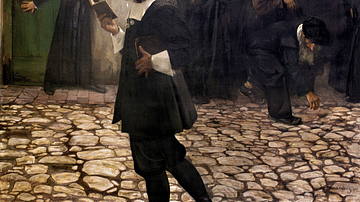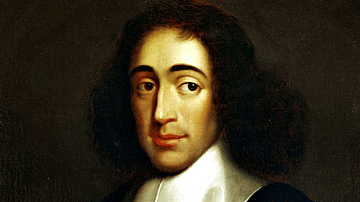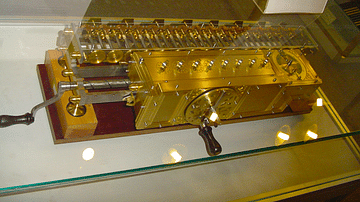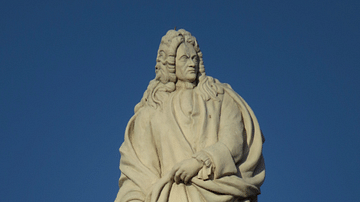Search Images
Browse Content (p. 298)

Image
Sir William Howe
General Sir William Howe, commander of the British forces during the American Revolutionary War. Mezzotint by Richard Purcell, published by John Morris, London, November 1777. Anne S. K. Brown Military History Collection at Brown University...

Image
George Washington, 1776
George Washington as commander of the Continental Army, 1776. That year, which saw the defeat of Washington's army at the Battle of Long Island and in the subsequent New York Campaign of 1776 was the bleakest year of Washington's military...

Image
Delaware Regiment at the Battle of Long Island
The Delaware Regiment of the Continental Army at the Battle of Long Island during the American Revolutionary War. Painting by Domenick D'Andrea, commissioned by the US National Guard Bureau, c. 2004.

Image
Baruch Spinoza, Rijksmuseum
A posthumous portrait lithographic print of the Dutch philosopher Baruch Spinoza (1632-1677). (Rijksmuseum, Amsterdam)

Image
Grave of Baruch Spinoza
The grave of the Dutch philosopher Baruch Spinoza (1632-1677) at the Nieuwe Kerk in The Hague, Netherlands.

Image
Excommunicated Spinoza
An early 20th-century painting by Samuel Hirszenberg of the Dutch philosopher Baruch Spinoza (1632-1677) illustrating his excomunication by the Jewish community in Amsterdam around 1656 for his radical views.

Image
Portrait of Spinoza
A c. 1665 portrait of the Dutch philosopher Baruch Spinoza (1632-1677). (Herzog August Library, Wolfenbüttel, Germany)

Image
Leibniz's Calculating Machine
The calculating machine capable of multiplication and division invented by Gottfried Wilhelm Leibniz (1646-1716), the German polymath. (Technische Sammlungen Museum, Dreseden, Germany)

Image
Gottfried Wilhelm Leibniz, 1695
A 1695 oil-on-canvas portrait by Christoph Bernhard Francke of Gottfried Wilhelm Leibniz (1646-1716), the German polymath. (Herzog Anton Ulrich Museum, Braunschweig, Germany)

Image
Statue of Gottfried Wilhelm Leibniz
A statue of Gottfried Wilhelm Leibniz (1646-1716), the German polymath. Natural History Museum, Vienna, Austria.